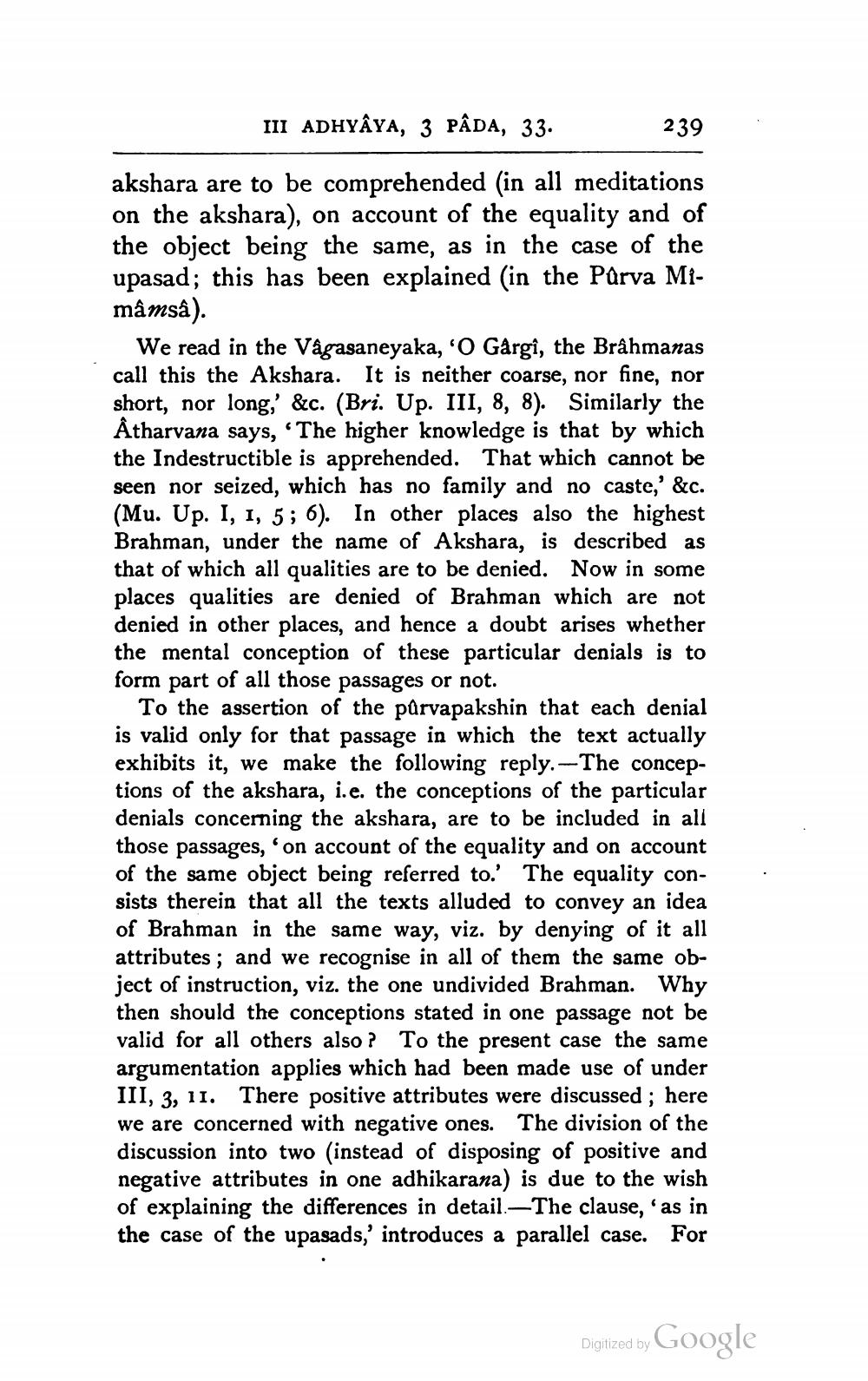________________
III ADHYAYA, 3 PÂDA, 33.
239
akshara are to be comprehended (in all meditations on the akshara), on account of the equality and of the object being the same, as in the case of the upasad; this has been explained in the Parva Mimâmsa).
We read in the Vagasaneyaka, 'O Gargî, the Brâhmanas call this the Akshara. It is neither coarse, nor fine, nor short, nor long,' &c. (Bri. Up. III, 8, 8). Similarly the Atharvana says, 'The higher knowledge is that by which the Indestructible is apprehended. That which cannot be seen nor seized, which has no family and no caste,' &c. (Mu. Up. I, 1, 5; 6). In other places also the highest Brahman, under the name of Akshara, is described as that of which all qualities are to be denied. Now in some places qualities are denied of Brahman which are not denied in other places, and hence a doubt arises whether the mental conception of these particular denials is to form part of all those passages or not.
To the assertion of the purvapakshin that each denial is valid only for that passage in which the text actually exhibits it, we make the following reply.-The conceptions of the akshara, i.e. the conceptions of the particular denials concerning the akshara, are to be included in all those passages, on account of the equality and on account of the same object being referred to.' The equality consists therein that all the texts alluded to convey an idea of Brahman in the same way, viz. by denying of it all attributes; and we recognise in all of them the same object of instruction, viz. the one undivided Brahman. Why then should the conceptions stated in one passage not be valid for all others also ? To the present case the same argumentation applies which had been made use of under III, 3, 11. There positive attributes were discussed; here we are concerned with negative ones. The division of the discussion into two (instead of disposing of positive and negative attributes in one adhikarana) is due to the wish of explaining the differences in detail.—The clause, as in the case of the upasads,' introduces a parallel case. For
Digitized by
Digized by Google




